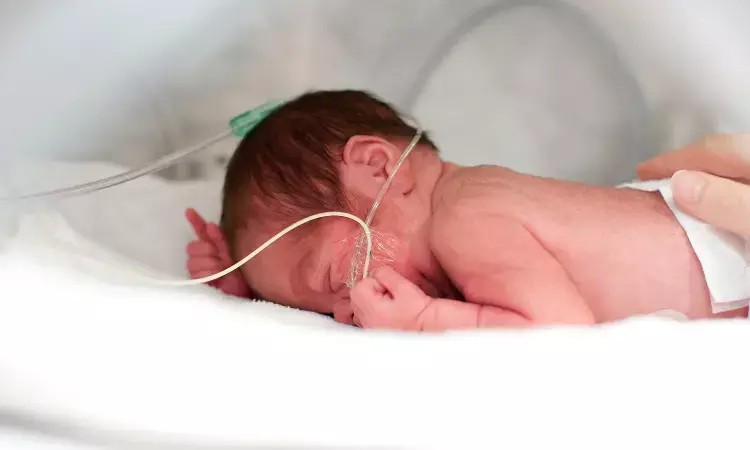- Home
- Medical news & Guidelines
- Anesthesiology
- Cardiology and CTVS
- Critical Care
- Dentistry
- Dermatology
- Diabetes and Endocrinology
- ENT
- Gastroenterology
- Medicine
- Nephrology
- Neurology
- Obstretics-Gynaecology
- Oncology
- Ophthalmology
- Orthopaedics
- Pediatrics-Neonatology
- Psychiatry
- Pulmonology
- Radiology
- Surgery
- Urology
- Laboratory Medicine
- Diet
- Nursing
- Paramedical
- Physiotherapy
- Health news
- Fact Check
- Bone Health Fact Check
- Brain Health Fact Check
- Cancer Related Fact Check
- Child Care Fact Check
- Dental and oral health fact check
- Diabetes and metabolic health fact check
- Diet and Nutrition Fact Check
- Eye and ENT Care Fact Check
- Fitness fact check
- Gut health fact check
- Heart health fact check
- Kidney health fact check
- Medical education fact check
- Men's health fact check
- Respiratory fact check
- Skin and hair care fact check
- Vaccine and Immunization fact check
- Women's health fact check
- AYUSH
- State News
- Andaman and Nicobar Islands
- Andhra Pradesh
- Arunachal Pradesh
- Assam
- Bihar
- Chandigarh
- Chattisgarh
- Dadra and Nagar Haveli
- Daman and Diu
- Delhi
- Goa
- Gujarat
- Haryana
- Himachal Pradesh
- Jammu & Kashmir
- Jharkhand
- Karnataka
- Kerala
- Ladakh
- Lakshadweep
- Madhya Pradesh
- Maharashtra
- Manipur
- Meghalaya
- Mizoram
- Nagaland
- Odisha
- Puducherry
- Punjab
- Rajasthan
- Sikkim
- Tamil Nadu
- Telangana
- Tripura
- Uttar Pradesh
- Uttrakhand
- West Bengal
- Medical Education
- Industry
Smart pacifier may monitor sodium and potassium levels among infants

This smart pacifier can also provide more continuous monitoring of sodium and potassium ion levels. These electrolytes help alert caregivers if babies are dehydrated, a danger for infants, especially those born prematurely or with other health issues.
Researchers tested the smart pacifier on a selection of infants in a hospital, and the results were comparable to data gained from their normal blood draws. They detailed their findings in a proof-of-concept study published in the journal Biosensors and Bioelectronics.
"We know that premature babies have a better chance of survival if they get a high quality of care in the first month of birth," said Jong-Hoon Kim, associate professor at the Washington State University School of Engineering and Computer Science and a co-corresponding author on the study.
"Normally, in a hospital environment, they draw blood from the baby twice a day, so they just get two data points. This device is a non-invasive way to provide real-time monitoring of the electrolyte concentration of babies."
The blood-draw method can be potentially painful for the infant, and it leaves big gaps in information since they are usually done once in the morning and once in the evening, Kim pointed out. Other methods have been developed to test an infants' saliva for these electrolytes, but they involve bulky, rigid devices that require a separate sample collection.
Using a common, commercially available pacifier, the researchers created a system that samples a baby's saliva through microfluidic channels. Whenever the baby has the pacifier in their mouth, saliva is naturally attracted to these channels, so the device doesn't require any kind of pumping system.
The channels have small sensors inside that measure the sodium and potassium ion concentrations in the saliva. Then this data is relayed wirelessly using Bluetooth to the caregiver.
For the next step of development, the research team plans to make the components more affordable and recyclable. Then, they will work to set up a larger test of the smart pacifier to establish its efficacy.
Kim said development of this device is part of a broader effort to help make NICU treatment less disruptive for their tiny patients.
"You often see NICU pictures where babies are hooked up to a bunch of wires to check their health conditions such as their heart rate, the respiratory rate, body temperature, and blood pressure," said Kim. "We want to get rid of those wires."
For further reference log on to:
Dr Kamal Kant Kohli-MBBS, DTCD- a chest specialist with more than 30 years of practice and a flair for writing clinical articles, Dr Kamal Kant Kohli joined Medical Dialogues as a Chief Editor of Medical News. Besides writing articles, as an editor, he proofreads and verifies all the medical content published on Medical Dialogues including those coming from journals, studies,medical conferences,guidelines etc. Email: drkohli@medicaldialogues.in. Contact no. 011-43720751


